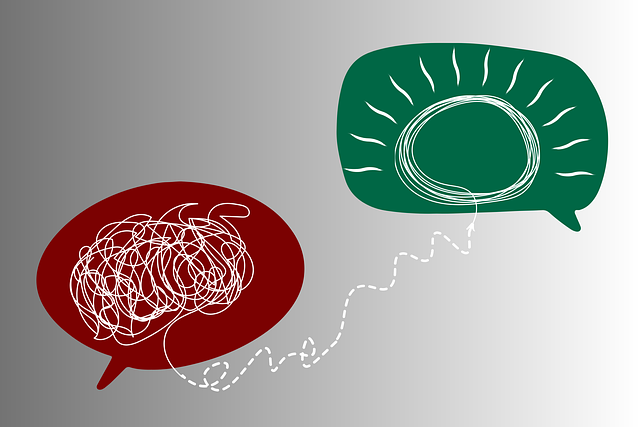Emotional intelligence (EI) development is crucial for adolescents navigating complex social environments and personal growth. Therapy focused on adolescent and teen development prioritizes fostering EI through practices like compassion cultivation, teaching emotion management and empathy. This enhances self-awareness, improves coping mechanisms, conflict resolution, and overall well-being. Tailored stress management workshops, group therapy, and mental wellness tools further support this process, empowering teens with essential skills to navigate emotions, relationships, and life's challenges in today's fast-paced world.
Emotional intelligence (EI) is a vital skill for adolescent and teen development, enabling them to navigate complex social interactions and emotional challenges. This article explores the significance of EI for teens, offering insights into how it can be enhanced through practical strategies. We delve into the transformative power of therapy for adolescent teens, providing tools to foster healthier relationships and improve mental well-being. By understanding and nurturing EI development, parents and professionals can empower teens to thrive in an increasingly demanding world.
- Understanding Emotional Intelligence and its Significance for Teens
- Strategies to Enhance Adolescent Emotional Intelligence
- The Role of Therapy in Nurturing Teen Emotional Intelligence Development
Understanding Emotional Intelligence and its Significance for Teens

Emotional intelligence (EI) is a vital skill for adolescents and teens as they navigate their way through complex social interactions and personal growth. It involves recognizing, understanding, and managing one’s own emotions, as well as empathizing with others’ feelings. For young people, developing EI can be transformative, helping them build strong relationships, make thoughtful decisions, and thrive in various aspects of life.
In the context of therapy for adolescent teens, fostering emotional intelligence is a key focus. Compassion cultivation practices, for instance, teach teens to respond to their emotions and those of others with kindness and understanding. This not only aids in burnout prevention but also facilitates healthier emotional healing processes. By recognizing and expressing their feelings effectively, adolescents can better cope with challenges, resolve conflicts, and develop a deeper sense of self-awareness, all of which are crucial for their overall well-being.
Strategies to Enhance Adolescent Emotional Intelligence

Building emotional intelligence (EI) is a crucial aspect of adolescent development. During their teens, individuals undergo significant emotional and social changes, making it an opportune time to cultivate EI skills. Several strategies can enhance emotional intelligence in this demographic: engaging in regular therapy for adolescent teens, which provides a safe space to explore and express feelings, can significantly improve their ability to recognize and manage emotions effectively. Group therapy sessions can also foster peer connections and cultural sensitivity in mental healthcare practice, allowing teens to learn from one another.
Additionally, organizing stress management workshops specifically tailored for adolescents and teens can equip them with practical tools to cope with everyday challenges. These workshops often incorporate mindfulness exercises, emotional awareness techniques, and social skills training, which are essential components of EI development. By integrating these strategies into their lives, teens can better navigate their emotions, improve relationships, and enhance overall mental health awareness.
The Role of Therapy in Nurturing Teen Emotional Intelligence Development

For adolescent and teen emotional intelligence development, therapy plays a pivotal role, serving as a nurturing ground for their growing minds. In today’s fast-paced world, where hustle and bustle often prevails, dedicated therapeutic spaces offer teens a safe haven to explore and understand their emotions. Therapy for adolescent teens goes beyond mere problem-solving; it empowers them with essential coping skills development, enabling them to navigate life’s challenges with resilience.
The Mental Wellness Podcast Series Production and Mental Wellness Journaling Exercise Guidance are valuable tools within the therapy framework. Through these avenues, adolescents gain insights into managing stress, cultivating self-awareness, and enhancing interpersonal relationships—all crucial components of emotional intelligence. By delving into these practices, teens can transform their experiences into learning opportunities, fostering mental wellness that resonates beyond the therapy room.
Emotional intelligence is a vital skill for adolescent and teen development, enabling them to navigate the complexities of life with resilience and empathy. By understanding and implementing strategies discussed in this article—including the beneficial role of therapy for adolescent teens—parents, educators, and caregivers can foster healthy emotional growth. Investing time and effort into enhancing emotional intelligence pays dividends, equipping teens with tools to manage their own emotions, build strong relationships, and thrive in an ever-changing world.











